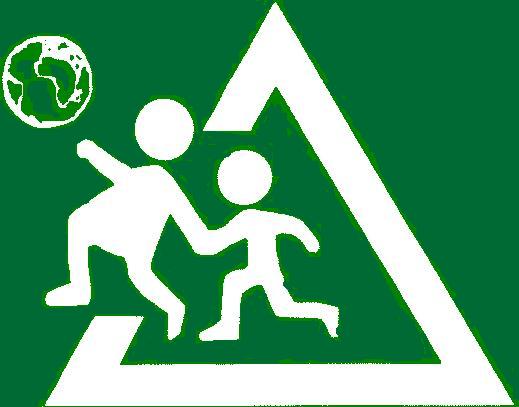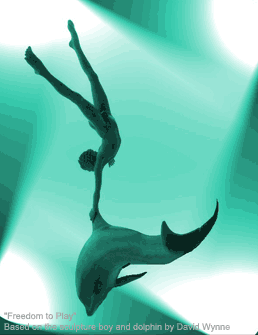 Fair Play
for Children Fair Play
for Children
for the Child's
Right to Play
Fair
Play for Children Publications
CLICK
ON TITLES TO ACCESS
Is
it ok for
police
and council
to 'ask' kids
to sign a
contract not
to do ten
things they
which they
haven't been
doing
anyway?
Or for one of
them to be
told she can't
visit five
estates where
she all her
family and
friends live?
For
threats of
loss of home
to be part of
the process?
Fair
Play followed
5 young
peoples'
encounters
with
'Acceptable
Behaviour
Contracts'.
Acceptable to
whom?
Two
publications
from Fair Play
about
Adventure
Playgrounds,
both by
renowned
playworker,
Tony Chilton
Submitted
by the Fair Play for Children
Association, UK
Hints
and Tips on the Use of Inflatables
from HSE:
These
simple precautions can help you
avoid serious accidents, whether
you supply bouncy castles and
inflatables, or you are hiring
one for your event.
|
|
|
|
|
Our
governing document
|
|
|
| |
Andre
Jackson is a freelance writer,
with interests in daily living,
mobility aid and the UK business
sector. He has been writing for
the past three years and is always
looking for new collaborations
with small businesses in the
United Kingdom and also across
Europe.
|
|
|
|
|
Fair
Play Fact Sheets and Guides
|
|
|
|
| |
Produced
for the 2010 UK General Election
|
|
|
|
|
| |
Hints
and Allegations
Report
in the wake of the Penn State
abuse scandal and as allegations
multiply re Jimmy Savile and abuse
at the BBC, NHS hospitals etc,
calls for independent Inquiry. 31
pages
|
|
| |
How
it All Started
The
letter to The Times in July 1972
by Trevor Huddleston which led to
the creation of Fair Play for
Children. |
|
"I
signed 'cos
mum said we'd
lose our home
if I didn't
sign"
Worrying
Fair Play
report about
"acceptable"
behaviour
contracts.
Whose
behaviour is
unacceptable
......?
LOCAL
EDUCATION AUTHORITY
OBLIGATIONS CONCERNING
PROVISION OF RECREATIONAL
FACILITIES FOR CHILDREN AND
YOUNG PEOPLE
|
REVISED
November
2024
Outline of what Local Educational
Authorities are required in law to
do re facilities for children and
young people, the relevant
sections of the 1996 Act and the
2006 amendments are included, plus
statutory guidance concerning
activities under the Act for those
aged 13 years+.
Includes Fair Play draft proposals
to improve the legislation
|
|
| |
|
|
| |
|
|
MODEL
CHILD PROTECTION POLICY
This Model Policy has been drawn
up to help managements of
children's and young people's play
and leisure organisations when
they are considering the detail of
a Child Protection Policy. It is a
Model, not a prescriptive
instruction, so the idea is that
it can be adapted to suit local
needs and circumstances.
|
|
|
|
|
|
|
|
| |
|
|
| |
PUBLICATIONS
not published by Fair Play
for Children
A
selection from various sources
|
|
|
|
|
| |
Scholarly
Journals - Childhood
Studies
An
A-Z of journals on many aspects of
childhood published by Rutgers,
The State University of New
Jersey.
|
|
|
The
Compatibility of
Acceptable Behaviour
Contracts with Article 6.1
of the European Convention
on Human Rights. Revised
edition
Fair
Play for Children has undertaken a
comprehensive review on the
issuing by local police forces
across England of Acceptable
Behaviour Contracts with
particular focus on whether the
forces involved have taken into
account Article 6.1 of the
European Convention on Human
Rights(ECHR). In total 40 forces
across England were surveyed
across a number of questions under
the Freedom of Information Act. 34
replied, one with separate data
from 4 Divisions, one based on one
Division.
|
|
|
The
State of Play - perspectives
for Local Councils
How
can Local Councils (Parish/Town)
ensure they have the right
policies place to guarantee
children the ability to play in a
sustainable, safe and stimulating
environment? Jan Cosgrove,
National Secretary of Fair Play,
writing in Local Council Review
Winter 2012
|
|
| |
|
|
| |
United
Nations Convention on The
Rights of the Child
This
is the most-signed Convention/
Treaty in history. It sets out the
basic rights of every child.
Article 31, on which Fair Play for
Children predicates its work, is
about The Child's Right to Play,
Rest and Leisure
|
|
VIDEO
Hop
Skip and
Jump -
2-part BBC programme
PART
ONE
PART
TWO
|
|
|
|
|
Go to
Index
All
links are in yellow 0n this site

Children
need Freedom to Play

Children
need Play to Imagine
The Right to be a Child
= The Right to Childhood
= The Right to Play
INDEX
FAIR PLAY FOR CHILDREN
Concerned
About A Child?
FPFC NewsPublicationsOnline Library / ResearchJoin Fair PlayContact UsJobs in Play Childcare and Youth and Childcare

Fair
Play exists to campaign for the Child's Right to Play,
part of the United Nations Convention on the Rights of The
Child
The United Nations Convention on the Rights of the Child is
the World's most adopted Treaty, the UK has signed
it. Article 31 of the Convention states:
1.
States Parties recognize the right of the child to rest and
leisure, to engage in play and recreational activities
appropriate to the age of the child and to participate freely
in cultural life and the arts.
2. States Parties shall respect and promote the right of the
child to participate fully in cultural and artistic life and
shall encourage the provision of appropriate and equal
opportunities for cultural, artistic, recreational and leisure
activity.
Fair
Play for Children says Britain should incorporate the
UN
Convention on the Rights of The Child into our
national law
The Convention in full: Read
it HERE

HERE It's FREE

________________________________________________
CONTACT US:
Email:
FPfC1972@gmail.com
32 Longford Road, Bognor
Regis PO21 1AG, UK
M 07488-265916
Skype:
FairPlayforChildren
________________________________________________
Fair Play 50
On 31st July 1972, a letter appeared in 'The Times' in the
wake of a tragedy - two boys aged nine and seven drowned
playing in a tin bath in an East End Canal in London ....
for want of somewhere safe to play.
A
LETTER TO 'The Times':
How Fair Play started
That event led
Bishop Trevor Huddleston CR, then Bishop of Stepney,
to pen an angry reproach in the press, he had known both boys
and their families. It was not right, he insisted,
that such a deficit should have led to their deaths.
With the same zeal that marked his defiance of apartheid in
his native South Africa (from which he had been exiled for his
views). Father Trevor launched this campaign, soon supported
by The Duke of Edinburgh, it was, and is, known as Fair Play
for Children.
Its mission is to achieve that safe, but challenging, play
space for every child, as now stated in Article 31 of the
United Nations Convention on the Rights of the Child.
At Fair Play, how do we measure progress towards that
aim? Though much has been achieved, overall can we
say that there has been much movement? Yes,
the community and voluntary sector in the UK has led the way,
against huge odds mainly thrown in their way by the statutory
sector. Oh, plenty of platitudes, 'nice thoughts',
but when we examine the record of government at all levels, it
has been a sad tale of non-achievement, even of
hindrance.
To be blunt, always the first target for cuts especially by
councils, often running counter to their statutory
obligations, which goes all too often unchallenged from
society. Fair
Play has been and is running a campaign on this aspect, to
get the law updated so that councils are held to account by
the Government. YOU CAN HELP IN THIS!
MPs and Ministers, local government chiefs, councillors etc
all KNOW the importance of Play, or they pay it enough lip
service that, were that translated into action and resource,
we'd by now have a Play-scape for Heaven on earth.
At this time, so much has been lost, trashed by cuts, our
children and young people have been betrayed.
Not very celebratory? Well, what is stated
does not diminish one jot the years of hard work and
dedication people and organisations have contributed and
continue to do so, Fair Play is dedicated to making sure they
have first call.
We will be aiming to secure legislative changes through
dialogue with the Government. You can
help by aiming letters at the your MPs to get their
support. Keep in touch via this website. We
urge you to redouble the fight for a Fair
Deal for Children's Play. Join Fair Play,
DONATE, campaign with us!

"The good news
is, I just got reconnected with a fantastic
organization. .... Hands down, they have the most
comprehensive and up to date website I have ever
seen... Outstanding. Thank you Fair Play for
Children for being part of the good news…(even when
you are sharing bad news). I needed you today!"
empoweredbyplay.org
" Fair Play gives
excellent support around Play-work issues offering
leaflets and policy documents as well as up to date
news and information. Ideal for any organisation
offering play activities with children.
" cffc.co.uk
" A lively site with lots of information, including
downloadable guidelines such as Organising a Playscheme
and Child Protection in Playwork. This site also
includes excellent information on adventure playgrounds.
An excellent directory of play organisations. "
playireland.ie
Donations always welcome
We don't
need a great deal to do our work but the truth is, if
you want us to be effective, we have to ask you for a
small donation.
Volunteer
effort = worth at least £24,000 in the past year has
enabled this site, Fair Play for Children News, added
Publications and Library items. updated Facebook and
Twitter, made Freedom of Information requests, written
to Ministers, MPs, Councils etc - and reached many
groups and people.
Donate directly from your online
account
Name of account: Fair Play
for Children
Sort code: 77-91-28
Account number: 87251160
or
Pay
via Pay Pal here
Fair
Play for Children

Other
British Isles National Play Organisations
Playing Out -
Street Play
Play
England
Play
Ireland
Playboard
Northern Ireland
Play Scotland
Play Wales
Fields
in Trust
International
Association for the Child's Right to Play - IPA
IPA UK
IPA
Scotland
Children's Play Policy Forum
Fair Play for Children WAYBACK
These links are samples from our
websites over the years, as captured by The Wayback Machine
www.fairplay31.online
(current site)
www.fairplayforchildren.org
(from 2008)
www.fairplayforchildren.net
www.arunet.co.uk/fairplay
from 1998
|





